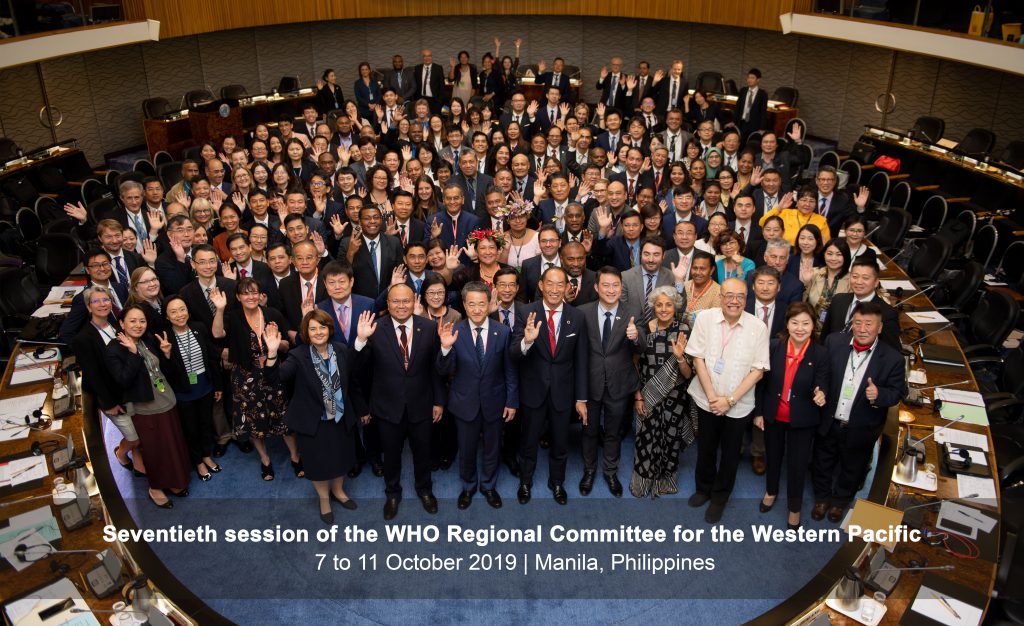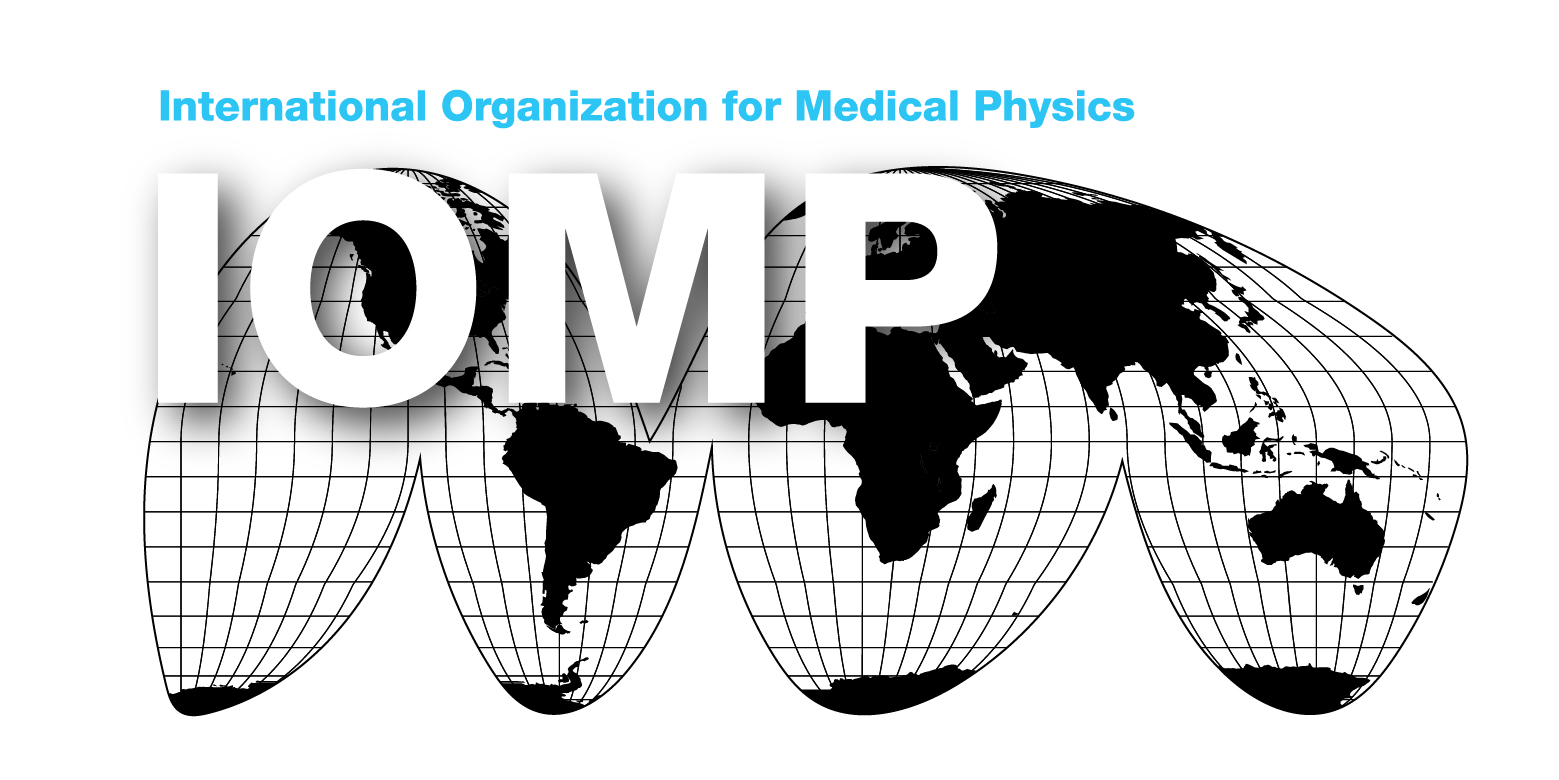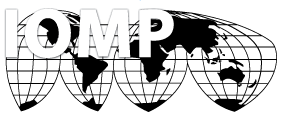Seventieth Session of the Regional Committee
October 7-11, 2019
Mr. Delmar R. Arzabal
IOMP Delegate
d.r.arzabal@gmail.com
The seventieth session of the World Health Organization Regional Committee for the Western Pacific was held last October 7-10, 2019 at the Regional Office in Manila, Philippines. More than 30 countries participated in the session. Several non-State Actors (NSAs) in official relations with WHO, including the International Organization for Medical Physics (IOMP), were invited as observers. Dr. Takeshi Kasai, the Regional Director, aims to make the Western Pacific the healthiest and safest region. To achieve this goal, four thematic priorities were presented in the meeting. These are (1) health security, including antimicrobial resistance, (2) non-communicable diseases (NCD) and ageing,(3) climate change, the environment and health, and lastly (4) reaching the unreached – people and communities still affected by infectious diseases and high rates of maternal and infant mortality.
 In addressing antimicrobial resistance (AMR) and health security, the planning and readiness for responding to health emergencies and outbreaks will be strengthened using pandemic preparedness. The Regional AMR Framework will be fully implemented to combat the rising threat of AMR. The framework utilizes One Health approach, with focus on animal-human interface both for AMR control and pandemic preparedness. On the resolution, the WHO work in the region will prioritize, health security, highlighting the fight against antimicrobial resistance (AMR). It was also noted that there is an uneven implementation of the Regional and National Action Plans by the member states. The acceleration on AMR action plan is being stressed especially with its alarming spread. Member states are being urged to device long-term, future-oriented, evidence-based mechanisms to improve existing systems and programs to yield sustainable solutions.
In addressing antimicrobial resistance (AMR) and health security, the planning and readiness for responding to health emergencies and outbreaks will be strengthened using pandemic preparedness. The Regional AMR Framework will be fully implemented to combat the rising threat of AMR. The framework utilizes One Health approach, with focus on animal-human interface both for AMR control and pandemic preparedness. On the resolution, the WHO work in the region will prioritize, health security, highlighting the fight against antimicrobial resistance (AMR). It was also noted that there is an uneven implementation of the Regional and National Action Plans by the member states. The acceleration on AMR action plan is being stressed especially with its alarming spread. Member states are being urged to device long-term, future-oriented, evidence-based mechanisms to improve existing systems and programs to yield sustainable solutions.
WHO offers full support to the countries in the Region to highlight the serial and economic impact of the NCD and ageing. This is implemented by measuring and visualizing the changes and trends in lifestyle and disease patterns occurring in each country and specific population groups. Products such as tobacco, alcohol, and unhealthy food are considered for tighter regulation and higher tax to lessen avoidable risks and promote healthy physical and social environments. Health systems across the Region will be oriented to provide people-focused services, paving the way to give support to patients in managing their chronic illnesses, protecting their physical, mental, and reproductive health. The WHO Framework Convention on Tobacco Control is affirmed once more in the resolution to continue the battle against the tobacco epidemic. Its implementation by member states needs to be accelerated to be able to achieve the Sustainable Development Goals. The regional committee pointed out the growing evidence of the harmful impact of the electronic nicotine and non-nicotine delivery systems (including e-cigarettes and vaping devices) and emerging tobacco products. In line with this, member states are urged to develop and review their regulatory measures in accordance to the tobacco control framework, and even consider banning electronic non-nicotine delivery systems.
The WHO Western Pacific Region plans to advocate for action on health impact of climate change and environmental concerns to be included at the highest political and policy making agenda. This is aided by developing stronger narratives and arguments relating climate change, environmental degradation and health. The impacts on health of climate and environmental change are continuously monitored to reinforce countries’ health resilience through national climate change adaptation and mitigation strategies. A resolution was written in order to protect the children for the detrimental effects of food marketing. It was emphasized that multisectoral and multi-stakeholders action is necessary. Member states are urged to utilize the Regional Action Framework for this matter fitting their national context.
To be able to reach the unreached, WHO WPRO sustains progress in improving mother and child health and ending epidemics. The Region continues to analyse system capacity needs to meet targeted relevant infectious diseases and plans to accelerate progress towards control targets and disease eliminating through strategic use of data, innovation, and “grounds up” solutions.
In order to address these issues, seven tools are identified to transform and “future proof” the countries’ health systems by driving strategic partnerships and long-term dialogues. For the next five years, the WHO will focus on (1) finding new approaches to meet future challenges, (2) working backwards from the long-term goal, (3) taking a systems approach, with Universal Health Coverage as foundation, (4) building solutions from the ground up, (5) driving and measuring the country impact, (6) championing health, beyond health sector, (7) strategic communication as a means to deliver on new ways of working.
The Seventy-First Session of the Regional Committee for the Western Pacific will be held in Japan, from 5th to 9th of October, 2020.

